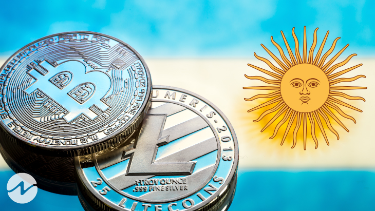The IMF provided a fund facility of $45B to Argentina in May 2020.
In March, the monthly inflation rose up to 6.7% in Argentina.
Argentina’s inflation rates are spiking up at an alarming rate. As reported by INDEC, its national statistical agency, the inflation rate reached an all-time high at 55.1%.
The never-ending combat spurred Argentines to adopt cryptocurrencies rather than relying on their volatile fiat.
Recently on Monday, two leading banks of Argentina Banco Galicia, a private bank, and the digital bank, Brubank announced the launch of crypto trading options for their clients to purchase cryptocurrencies through their portals. This facility enabled users to purchase Bitcoin (BTC), Ether (ETH), Ripple (XRP) and stablecoin USD coin (USDC). Crypto adopters in Argentina were able to access this advantage only for a four-day period until intervention of the Central Bank.
On Thursday, the Central Bank of Argentina (BCRA), which has been an anti-crypto entity, banned banks and other financial entities from offering any kind of digital asset operation to their clients. Thus, Banco Galicia and Brubank suspended their newly added operation.
The BCRA stated:
“The activity of financial entities must be aimed at financing investment, production, marketing, consumption of goods and services required by both domestic demand and export.”
Suppressing Crypto Services
Mayor of Buenos Aires, Horacio Rodríguez Larreta, presented “Bruno Aries+”, a plan of 12 measures, for the adoption of crypto and blockchain into the State. This plan will enable the citizens of the Capital to initiate their tax payments via their crypto wallets. With the help of crypto firms or exchanges, the cryptocurrencies will be converted and transferred as peso into the State’s accounts. It plans to launch a blockchain-based digital identification (DID) platform for its residents. The Central Bank’s recent action is completely contradicting the goal of the 12-step plan.
The Central Bank pledges to discourage the inclusion of digital assets in the financial system to prevent money laundering, cyber attacks and cross-border terrorism.

